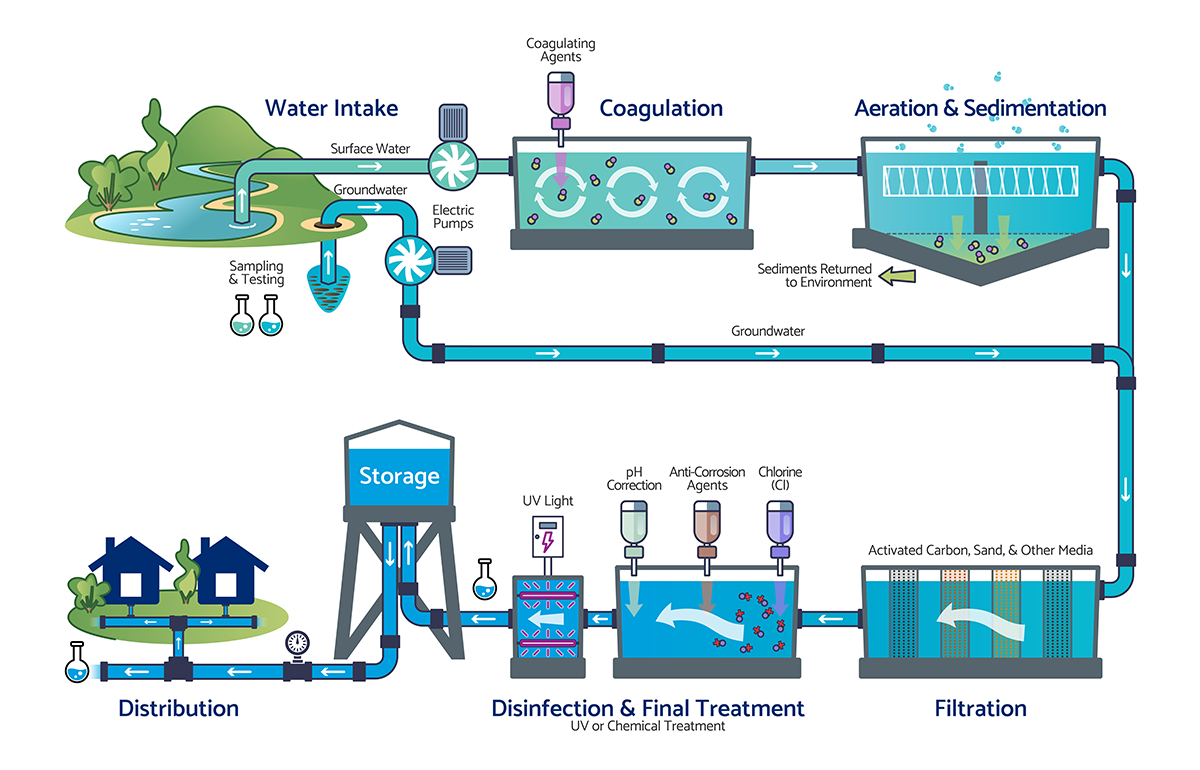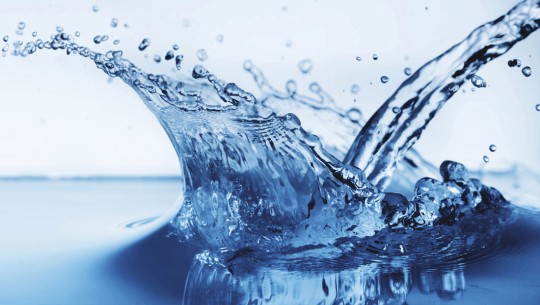Water Technology Startups: How to Stay Ahead of Compliance Shifts
Wiki Article
Checking Out Water Technology Startups: Exactly How They Revolutionize Sustainable Solutions
Water Technology startups are emerging as crucial gamers in the quest for lasting solutions to global water concerns. These business utilize ingenious modern technologies to improve water performance and management. Their contributions resolve pressing difficulties such as deficiency and contamination. Regardless of their possibility, they encounter numerous obstacles that could impact their success. Recognizing these characteristics sheds light on the future of water sustainability and the role these startups may play in forming it.The Value of Water Technology in Today's World
As worldwide water shortage magnifies, the significance of water Technology becomes increasingly noticeable. Water Technology plays a vital function in resolving the obstacles postured by diminishing freshwater sources and enhancing need. It encompasses a wide variety of innovations, consisting of innovative filtering systems, wastewater treatment innovations, and clever irrigation options. These innovations not just enhance the effectiveness of water usage yet also promote lasting techniques across different sectors, consisting of farming, sector, and city development.The importance of water Technology prolongs beyond source monitoring. It fosters resilience versus climate adjustment effects, such as droughts and floods, by providing flexible solutions for water preservation and administration. Furthermore, it sustains public wellness by making certain access to secure and tidy drinking water. As the globe deals with growing water-related obstacles, the assimilation of cutting-edge water modern technologies is vital for fostering sustainable advancement and protecting water accessibility for future generations.
Cutting-edge Solutions From Water Tech Startups
While traditional strategies to water administration have served their purpose, a new age of water technology startups is revolutionizing the industry with ingenious remedies (Water Technology Startups). These business leverage innovative innovations to attend to pushing water problems, such as deficiency, contamination, and ineffective distribution. Lots of start-ups use expert system and equipment discovering to enhance water usage and forecast demand, leading to more sustainable practicesIn addition, several firms concentrate on developing innovative filtration systems that get rid of contaminants and make water secure for usage. Others check out decentralized water therapy innovations, enabling communities to manage their water resources extra effectively. Additionally, some start-ups are introducing wise irrigation services that minimize water waste in farming, advertising ecological preservation.
Situation Studies: Successful Water Technology Startups
Many water Technology start-ups have emerged as leaders in addressing global water obstacles with innovative methods. One notable instance is Xylem, which concentrates on water analytics and clever infrastructure to optimize water usage and reduce waste. Their services have been implemented in different districts, showing substantial enhancements in water administration effectiveness.One more successful start-up, Absolutely no Mass Water, has developed solar-powered hydropanels that remove water vapor from the air, providing lasting drinking water in deserts. Water Technology Startups. This Technology has actually been released in numerous countries, making sure neighborhoods have access to clean water
AquaVenture Holdings runs a varied portfolio of water-as-a-service solutions, attending to water shortage through desalination and wastewater therapy. Their tasks have verified vital in areas encountering severe water scarcities, showcasing the capacity of ingenious water innovations to create long lasting, positive influences. These study highlight the transformative possibility of start-ups in the water Technology field.
The Role of Smart Technology in Water Administration
Smart Technology plays a necessary function in modern water monitoring by leveraging IoT applications to optimize source use. Information analytics improves performance by offering workable understandings, while remote tracking services make it possible for real-time oversight of water systems. Together, these advancements change exactly how water is handled, promoting sustainability and functional effectiveness.IoT Applications in Water
As water deficiency and management challenges magnify worldwide, the combination of Internet of Points (IoT) applications has actually arised as a pivotal service in maximizing water resources. IoT Technology assists in real-time monitoring and evaluation of water supply, making it possible for more reliable use and management. Sensing units deployed in different water infrastructures can track quality, flow rates, and leakage, providing valuable information to stakeholders. This data encourages customers and utilities to make informed decisions, minimizing waste and boosting preservation initiatives. Furthermore, wise watering systems use IoT to optimize water delivery for farming, ensuring that plants get the right amount of water at the correct time. Generally, IoT applications are transforming traditional water management practices, cultivating sustainability and resilience in water resource systems.Information Analytics for Effectiveness
Using data analytics is important for enhancing performance in water monitoring. Water Technology startups are progressively using sophisticated analytics to optimize source appropriation and lower waste. By analyzing information from different resources, these startups can determine patterns and patterns that notify far better decision-making. For instance, predictive analytics can anticipate water need, permitting energies to change supply appropriately, thus minimizing excess and lacks. Additionally, real-time information handling enables the immediate discovery of leaks and inefficiencies within circulation systems, considerably lowering operational expenses. Furthermore, data-driven insights empower stakeholders to here carry out targeted preservation techniques, promoting sustainable methods. Essentially, incorporating data analytics right into water management not only streamlines procedures yet also promotes long-term sustainability in water resource use.Remote Surveillance Solutions
While typical water administration systems usually have problem with inefficiencies, remote surveillance remedies are changing just how water sources are taken care of. These ingenious technologies allow real-time data collection and analysis, permitting stakeholders to monitor water quality, flow rates, and use patterns from afar. Making use of sensing units and IoT devices, remote surveillance offers instant understandings that facilitate positive decision-making. This shift not only enhances operational performance however additionally advertises sustainability by reducing water waste and maximizing resource allocation. Furthermore, remote surveillance systems can recognize potential problems prior to they rise, thereby minimizing the threat of contamination or framework failure. As water Technology start-ups continue to establish these services, the market is positioned for significant developments in lasting water management methods.Obstacles Dealing With Water Technology Startups
Water Technology startups experience substantial obstacles that can impede their development and success. Trick concerns include securing ample financing, maneuvering through complicated governing atmospheres, and completing in a crowded industry. These obstacles need tactical planning and innovation to get over.Financing and Financial Investment Obstacles
Although technology in water Technology holds enormous capacity for dealing with worldwide difficulties, start-ups in this field typically encounter significant financing and financial investment hurdles. Several capitalists remain mindful, regarding the water sector as high-risk because of its intricate regulatory landscape and long development timelines. In addition, startups commonly battle to show immediate profitability, which can hinder potential backers. Traditional equity capital may neglect water innovation, preferring sectors with quicker returns, such as technology or consumer goods. Securing grants and government funding can be affordable and taxing, additional making complex economic security. Because of this, numerous innovative water Technology start-ups locate themselves in a precarious setting, requiring creative funding approaches to navigate these financial barriers and accomplish their objectivesRegulatory Conformity Issues
Steering regulative compliance is a substantial challenge for start-ups in the water Technology industry, as they should face a myriad of regional, nationwide, and international guidelines. These regulations commonly incorporate water top quality requirements, environmental management legislations, and safety and security procedures, which can vary widely throughout jurisdictions. Startups may discover it hard to navigate this complex landscape, particularly when scaling operations or entering brand-new markets. The costs connected with conformity can be considerable, drawing away sources far from development and product development. In addition, hold-ups in obtaining necessary licenses or certifications can hinder development and market entry. Consequently, a durable understanding of regulatory frameworks is important for these startups to assure lasting procedures and prevent potential lawful repercussions.Market Competition Dynamics
As water Technology start-ups emerge in an affordable landscape, they encounter countless difficulties that can hinder their growth and innovation. Established business often control the market, leveraging sources and experience to keep their placements. Startups battle with limited funding, which restricts research and development capabilities, making it difficult to contend on Technology and rates. In addition, the rapidly developing nature of water technologies needs constant adaptation, additional stressing start-up resources. Regulative difficulties can complicate market access, as compliance with environmental criteria is essential yet pricey. Attracting knowledgeable ability in a particular niche area offers an additional challenge, as larger firms might use even more attractive employment bundles. Consequently, these aspects create an intricate atmosphere for water Technology startups aiming to prosper.
The Future of Water Technology and Sustainability

The future of water Technology will likely concentrate on integrating synthetic knowledge and information analytics to enhance water circulation and usage patterns. By utilizing real-time information, firms can forecast shortages and handle resources better. Lasting methods will become a keystone of the sector, urging round economies where water is recycled and dealt with. Eventually, the continued evolution of water Technology will be crucial in producing resilient frameworks efficient in meeting the difficulties positioned by climate change and population growth while promoting environmental stewardship.
Regularly Asked Concerns
What Are the Trick Metrics for Reviewing Water Technology Startups?
Key metrics for assessing water Technology start-ups consist of market capacity, scalability, consumer purchase expenses, earnings growth, technology advancement, regulatory conformity, ecological effect, competitive advantage, and group experience, all critical for establishing long-term practicality and success.Exactly How Can People Support Water Technology Innovations?
People can support water Technology developments by spending in startups, promoting for plan adjustments, taking part in community campaigns, sharing expertise about sustainable methods, and promoting understanding of water problems through neighborhood occasions and social media.What Are Common Funding Resources for Water Technology Startups?
Usual funding sources for water tech start-ups include equity capital, federal government gives, crowdfunding platforms, angel capitalists, and corporate partnerships. These economic methods assist assist in advancement and growth in lasting water monitoring modern technologies.
Which Industries Benefit The Majority Of From Water Technology Advancements?
Industries such as farming, power, manufacturing, and municipal services profit significantly from water Technology developments. These developments enhance water performance, lower prices, and promote sustainable techniques, inevitably adding to environmental conservation and resource management.Exist Any Kind Of Regulative Difficulties Specific to Water Modern Technology?
Yes, water Technology encounters regulative challenges, consisting of compliance with ecological standards, allowing processes, and differing regional laws. These intricacies can hinder technology and reduce the implementation of brand-new modern technologies in the water management market.Water Technology start-ups are arising as vital gamers in the mission for lasting remedies to global water problems. As global water shortage magnifies, the importance of water Technology ends up being progressively apparent. Others discover decentralized water treatment technologies, permitting neighborhoods to manage their water sources much more properly. An additional successful start-up, No Mass Water, has established solar-powered hydropanels that draw out water vapor from the air, offering lasting alcohol consumption water in arid regions. Their tasks have actually verified crucial in regions dealing with severe water scarcities, showcasing the capacity of ingenious water technologies to develop long lasting, favorable influences.
Report this wiki page